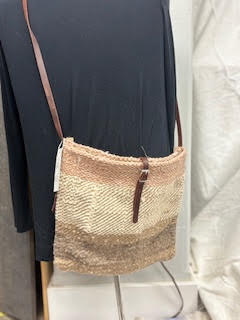Book Review: Raw Material - Working Wool in the West
- Angela T.
- Jun 2, 2025
- 3 min read

I realize I am 7 years late to the party since this gem was published. But that will not stop me from gushing over this work and hoping to reach the uniformed also hiding under rocks with me.
Like so many of us in the sheep industry, the author, Stephany Wilkes, started off as an end-user artist who wanted to dig back deeper to become a useful part of the wool supply chain. But becoming a lady sheep shearer? Even I'm not that crazy. Because I keep Merino sheep (large and wrinkly), I had participated in the backbreaking work of shearing day annually. This shepherdess was in awe of the strength, composure, and grit of my sheep shearers. I always handed over their pay (plus tip) thinking "They are not charging me nearly enough for this." Followed immediately by "But how could wool growers afford any higher costs?" Stephany beautifully touches on these resource concerns--and so much more--in this heartfelt book.
Whether the author is describing in vivid and emotional detail her first day on the job getting literally beat up by a sheep, or the day she nicked the neck vein of a wrinkly merino, or spelling out in plain terms the exact year and cause of the downfall of wool in America, I was transfixed.
Of course, she covers so many important talking points in the supply chain. Slow fashion, environmental impact (both synthetic and animal), natural dyes, the mills, the price of wool, the threat of fires, and the obstacles placed in front of small business owners trying to set up manufacturing. There are multiple chapters devoted to the beginning to end story of a young family in California trying to design, fund, and set up a wool mill through bureaucracy that was much more riveting than it sounds on the surface.
As a reader of the historical fiction, The Indigo Girl by Natasha Boyd, I was tickled indigo to see an entire chapter devoted to the re-awakened genetics of said dye-plant from Eliza Lucas' plantation. And I nearly wept through the chapter devoted to mills and, specifically, Zeilinger's Wool Mill in Michigan which has closed since the publishing of this book! A death knell in the wool supply chain for us moderately small flocks as we lose options for creating combed top with small batches of fine fiber.
The frequent mention of the author crossing paths with Rebecca Burgess's Fibershed in California made me simultaneously proud and feeling an underachiever. We at Montana Fibershed have so much ground to cover to even accomplish a fraction of what the California Fibershed has attempted.
For me, the author captured eloquently the point of why we do this barely sustainable but joyous work. Like me, she left a well-paying job in the corporate world to dig her hands into fiber that smells of sun and grass and soil. To insert yourself into the supply chain, according to Stephany:
I'd found an antidote to alienation, and it had started, strange as it seemed, with caring about where my clothes came from (or my yarn, anyway), "the carbohydrates and the proteins we wear" as Rebecca Burgess put it, not only those we eat. Who knew? Perhaps becoming a less energy dependent, more independent nation could start with a good sweater.
I can't recommend this book enough. It captured the emotion and the passion of us wool growers. May it tear down and build you back up, as it did me. At nearly 50, my answer to all who ask is, "I simply want to live a life of purpose". Ms. Wilkes reflects my desire by quoting Wendell Berry from The Unsettling of America:
The standard of the exploiter is efficiency; the standard of the nurturer is care. The exploiter's goal is money, profit; the nurturer's goal is health--his land's health, his own, his family's his community's, his country's...The exploiter wishes to earn as much as possible by as little work as possible; the nurturer expects, certainly, to have a decent living from his work, but his characteristic wish is to work as well as possible.
About the Author
Stephany Wilkes is a sheep shearer certified by the University of California Agricultural and Natural Extension Center, a wool classer certified by the American Sheep Industry Association, and the president of the Northern California Fibershed Cooperative. Her writing has appeared in The Billfold, The Ag Mag, Hobby Farms, Midwestern Gothic, and other publications. Stephany speaks about sheep and wool terroir at numerous yarn shops, fiber festivals, schools, and events. She lives and gardens in San Francisco.






Comments